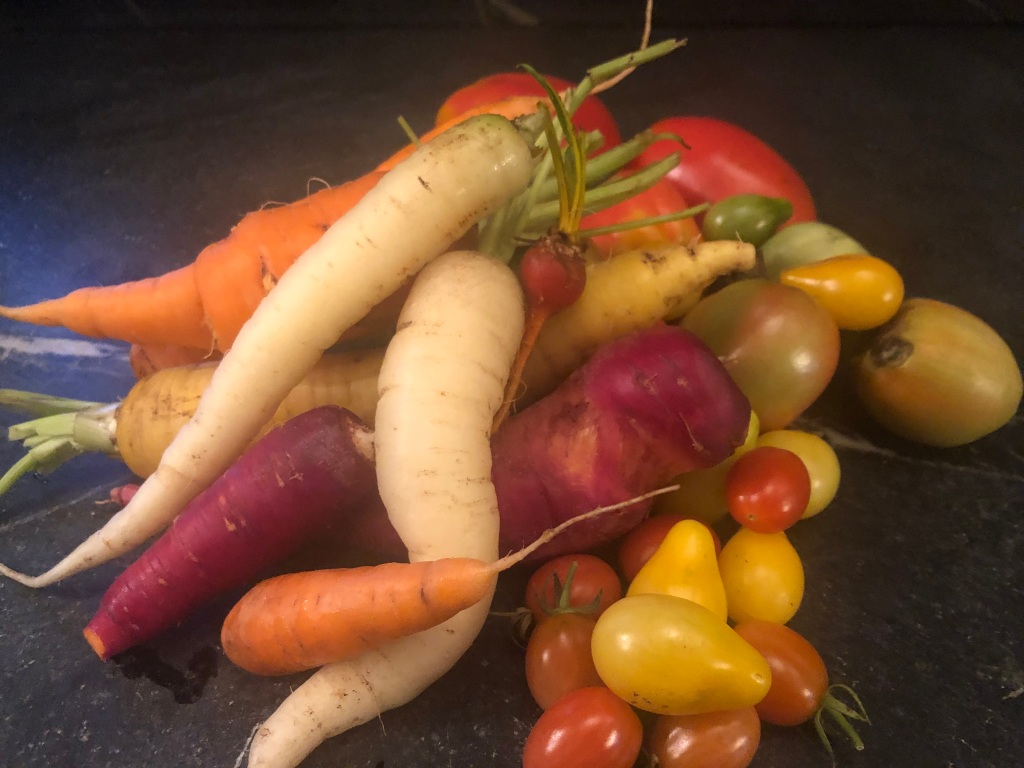
When does cooking really make sense? When do cooks fully understand the process of cooking and the importance of what they do? When do competence and confidence become the benchmarks of a cook’s career? These are honest and important questions with a multitude of answers, but let’s start with ingredients.
If you are a property chef, take a moment to pull your cooks into your office – one at a time and ask a simple question: “What do you know about the carrots, tomatoes, fresh fish, or sub primal cuts of meat that are in our coolers?” After that puzzled look on their face subsides, I wonder what they might say? Could they talk about the work of a commercial fisherman, the daily routine of caring for a herd of cattle, the back breaking job of tilling soil, weeding, and harvesting? The answer is likely – NO! I would dare say that most cooks working in restaurants today have never spent a day on a farm, a commercial fishing boat, or tried their hand at corralling stubborn cattle back into their pen. Certainly, they have never milked a dairy cow or goat, watched a cow give birth, thrown bales of hay onto the back of a flatbed truck, or bent at the waist to harvest grapes for the crush.
Should every cook experience these processes to be good at what they do? The answer is YES. Of course, cooks can be trained to be functional with their work, follow recipes and procedures, build speed, and even develop a decent palate for seasoning dishes, but will they be truly competent, understanding, and confident in their role without connecting with the ingredients and those who bring them to the back door of the restaurant? The answer is “not really”.
So, chef – you want your team to be proud, professional, passionate, dedicated, conscientious, attentive, and focused, don’t you? You want your team to have the same enthusiasm for the craft as you do and you live for the day when they look at the plates they present in the pass as a cumulative effort – the best that they can do, don’t you? Then their education will never be complete unless they are able to connect to those ingredients.
I’m talking about a totally different level of training and teaching – a commitment to help build exceptional cooks who take their work very seriously. I’m talking about a serious commitment on your part and that of the restaurant where you work to transformational training.
Build your connections with farmers, fisherman, fish and meat purveyors, cheesemakers, artisan bread bakers, wine makers or distributors, distillers, and brewers – bring them into the fold as part of your training and teaching team.
Do you want to see your cooks light up with excitement? Wouldn’t it be nice to watch them approach their job with a new level of enlightenment and enthusiasm? Well then – invest in them. Will this be expensive to undertake? Not compared to the cost of unenthusiastic, less than ideally skilled, inconsistent employees. This is not a cost – it is an investment in a stronger team, better products on the plate, a competitive edge, attracting the best employees and retaining them, and a high level of guest satisfaction.
Pay your cooks to work a day on a local farm. Once they get up before sunrise and work the fields, help to till the land, plant seeds, or harvest those carrots you asked about, their appreciation for carrots and how they are treated in your kitchen will change – dramatically. Take them on a paid observation at a regional fish market or better yet – dockside to be around fishermen coming in with their catch for the day. Visit a local meat packing plant and have them watch cattle move through the process, experience the kill floor, watch how meat is graded by a USDA inspector, and marvel at the skill of meat cutters on an assembly line. Guaranteed, they will have a whole different level of respect for that strip loin, 109 prime rib, or tenderloin that before this experience, thought they simply arrived on the back of a truck. Make sure your cooks walk through the ultra-sanitary facility where milk is separated into curds and whey, pressed into molds, and gently cared for during the affinage (aging) of the cheese. I know they will better appreciate the nuances of flavor that the cheesemaker was able to coax out of simple ingredients. Make sure that every cook spends a day or two of very early mornings mixing, proofing, and shaping artisan loaves of bread – peeling them onto 500-degree oven hearths and watch the oven spring and crust develop. Make sure they cut a slice of still warm bread from a boule and slather it with cultured butter, so they understand the role great bread plays in a perfect meal. I know they will NEVER accept anything but quality artisan loaves after that.
The work that a cook does, their attention to detail, the quality of each plate presented to a guest is a result of the experiences they have, the knowledge they accumulate, the skills they fine tune, and appreciation for their role in the food eco-system. As chefs, we have an obligation to provide this training otherwise your team will never gel, and the guest experience will always lack that special touch.
PLAN BETTER – TRAIN HARDER – CREATE EXPERIENCES
Harvest America Ventures, LLC
Restaurant Consulting
www.harvestamericacues.com BLOG
(Over 800 articles about the business and people of food)
CAFÉ Talks Podcasthttps://cafemeetingplace.com/cafe-podcasts

Leave a comment